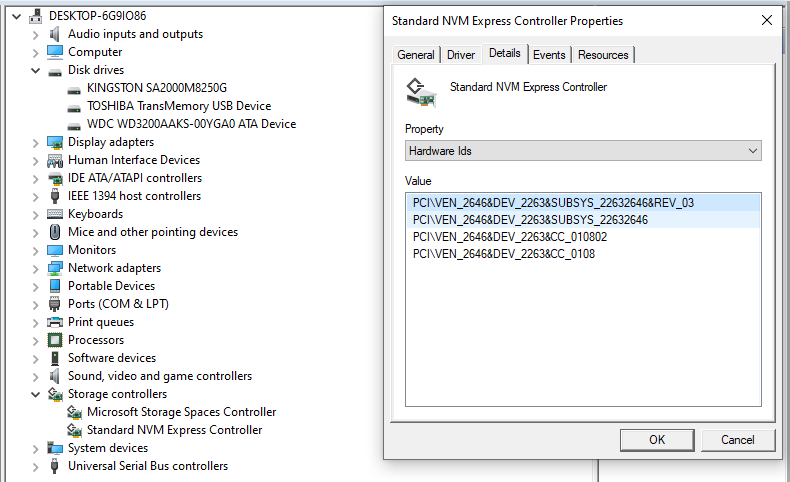@Aflito - Yes, sometimes on cheaper/budget/OEM systems you can use same BIOS on different "Models/Brands"
Hello,
I have old board ASUS P5G41T-M LX3 with Xeon E5450. When i install nvme with adapter and clover boot, nvme not detect with clover.
I try to install nvme on another board with clover boot:
- Gigabyte GA-H61M-DS2 -> nvme detect
- Gigabyte GA-78LMT-S2P -> nvme detect
- Varro G41V-R3 -> nvme detect
On bios Varro G41V-R3 in Storage Configuration Menu AHCI RAID option exist, otherwise in ASUS P5G41T-M LX3 AHCI RAID missing
Storage Varro G41 AHCI
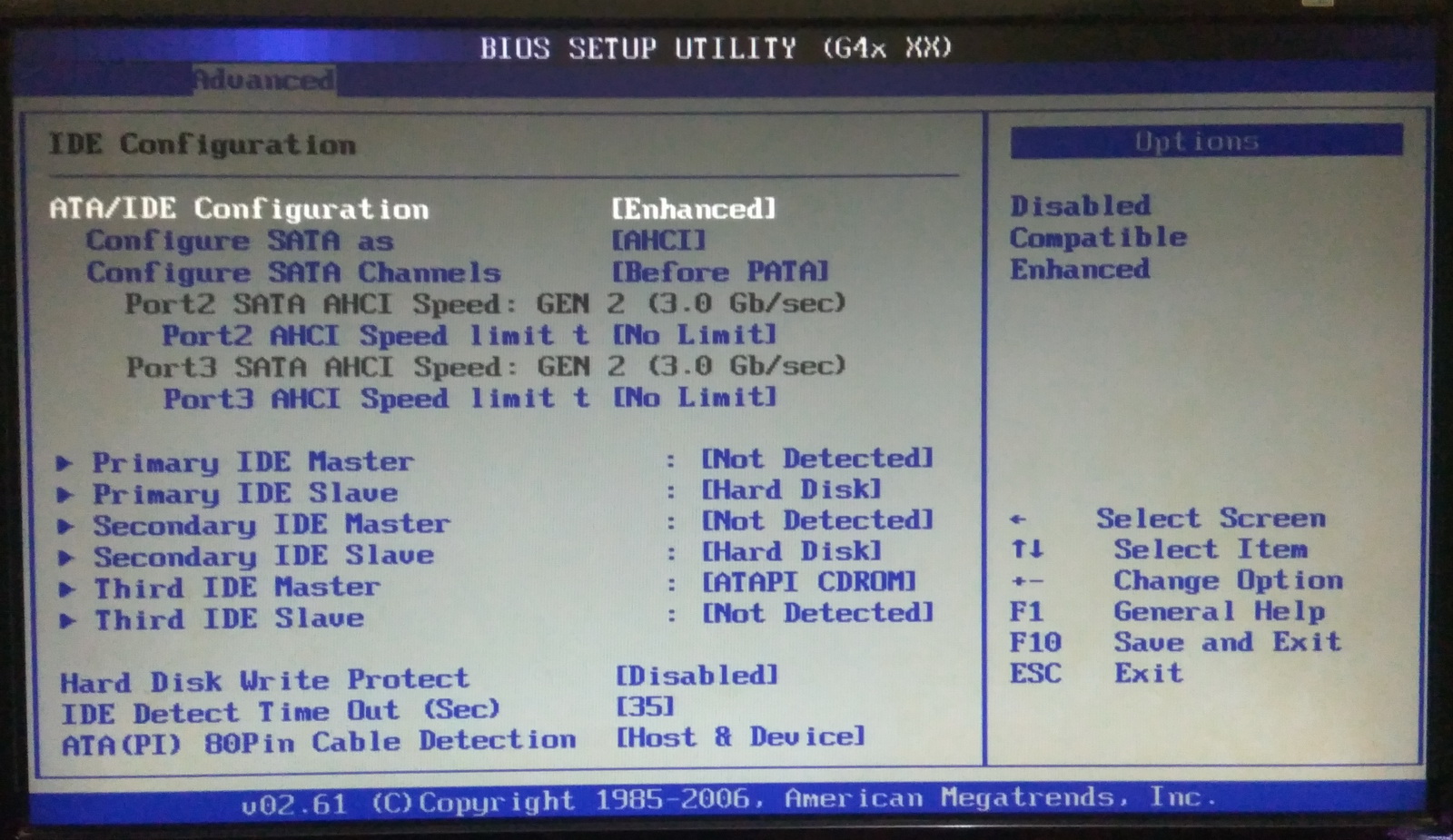
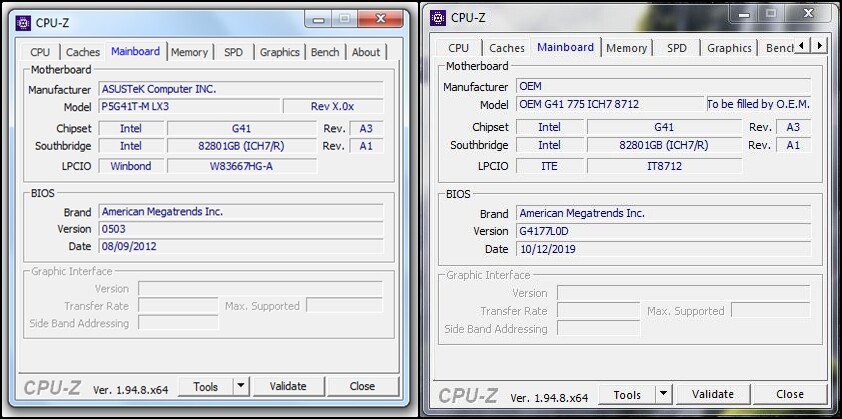
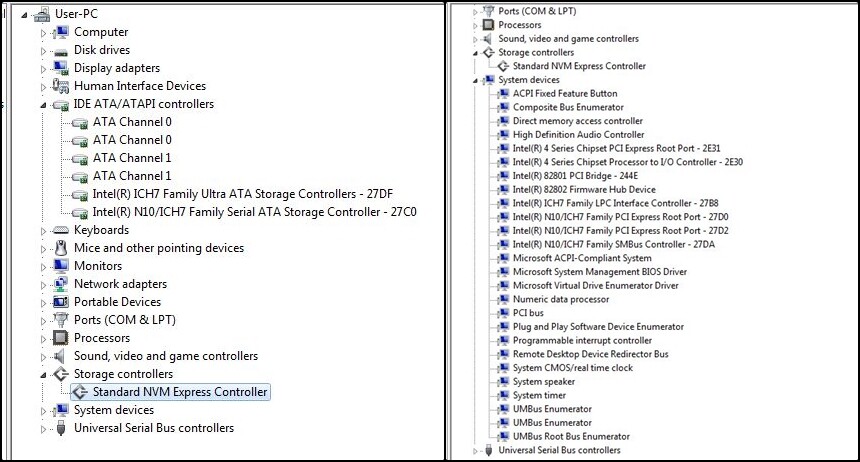
I can't find sata raid on extracted bios Varro G41V-R3 PCI Option ROM With MMTool 3.22 BKMOD, 3.26.
Thank's
Edit by Fernando: Text re-formatted to save space and for better readability
P5G41T-M-LX3-ASUS-0503-XEON.rar (526 KB)
VARRO G41V-R3 G4177L0D.rar (404 KB)
Hi,
Regarding NVMe modded version for AMI Core 8 which is will be fit with MSI MS-7550, and since that motherboard software has 6 places each has PCI Option ROM. Should I do replace the said above mod instead which one of these?
Thanks!
| VID: | DID: | Device Details: | Vendor Details: |
| 1002 | 4392 | SB7x0/SB8x0/SB9x0 SATA Controller [Non-RAID5 mode] | Advanced Micro Devices, Inc. [AMD/ATI] |
| 1002 | 9610 | RS780 [Radeon HD 3200] | Advanced Micro Devices, Inc. [AMD/ATI] |
| 1002 | FFF0 | Empty | Advanced Micro Devices, Inc. [AMD/ATI] |
| 10EC | 8168 | RTL8111/8168/8411 PCI Express Gigabit Ethernet Controller | Realtek Semiconductor Co., Ltd. |
| 1002 | 4394 | SB7x0/SB8x0/SB9x0 SATA Controller [AHCI mode] | Advanced Micro Devices, Inc. [AMD/ATI] |
| 1002 | 4391 | SB7x0/SB8x0/SB9x0 SATA Controller [AHCI mode] | Advanced Micro Devices, Inc. [AMD/ATI] |
Edit by Fernando: Table formatted (for better readability)
@fo18 :
Welcome to the Win-RAID Forum and sorry for the late reply!
Your questions regarding the NVMe support by using the "Clover Method" have nothing to do with the topic "BIOS Modding" and should be posted into >this< thread.
It depends on the HardwareIDs of your currently in-use on-board SATA Controller.
Depending on the SATA mode (AHCI or RAID) the related Controller is listed either within the "IDE ATA/ATAPI Controllers" or within the "Storage Controllers" section of the Device Manager.
Why do you want to add or update/replace the Option ROM modules of your BIOS at all? It only makes sense for on-board Controllers, which are currently used.
Regards
Dieter (alias Fernando)
@Abdllaziz :
It depends on the HardwareIDs of your on-board SATA Controller.
@Fernando
Hi,
Does the follows snapshot helpful?
Thanks!
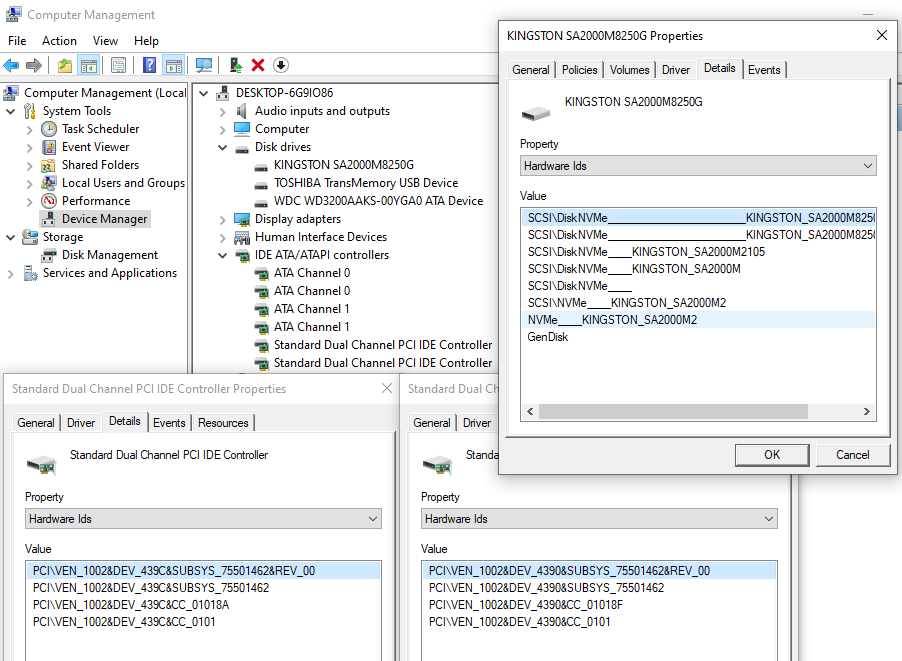
Not for me. I don’t see any benefit for your system by modifying the BIOS.
Why do you want to update the Option ROM modules at all? Do you feel better, when the Option ROM modules of your mainboard BIOS are the latest, although they are not used by your system?
As stated earlier #184 I need it to make SSD bootable instead of HDD.
@Abdllaziz : What lets you think, that you can solve your problem by a new or updated Option ROM BIOS module?
An SSD boots the same way as a HDD. The question whether an SSD is bootable or not depends on its Storage Controller.
Which SSD of your current configuration is not bootable and which data transfer protocol (SATA or NVMe) does it use?
@Abdllaziz :
Finally I may have understood the sense of your cryptic posts: You obviously want to boot off a Kingston NVMe SSD by inserting a customized variant of Ethaniel’s experimental NVMe Option ROM. The HardwareIDs of the Kingston SSD (listed within the “Disk Drives” section of the Device Manager) and of the “IDE ATA/ATAPI Controllers” have nothing to do with the related procedure.
What you need are the HardwareIDs (VendorID and DeviceID) of the NVMe Controller, which is inside the SSD. This Controller is listed within the “Storage Controllers” section of the Device Manager.
Your posted screenshots were absolutely misleading.
@Abdllaziz : As long as you have set the on-board AMD SATA Controller within the BIOS to “IDE” mode, you can remove or replace all Option ROM modules, whose “Details” begin with the text “SB7x0/SB8x0/SB9x0 SATA Controller”.
Question: Why haven’t you set the AMD SATA Controller to “AHCI” within the BIOS?
Note: You should not try to change the SATA mode of a running system as long as your boot device (Drive C:) is connected to a SATA port.
@Fernando
I changed the mode to be: AHCI hence the machine is not able to boot/ reach to the Operating System as you mention that in the said above "Note"
It’s a dehlima right? does it’s possible to replace BIOS file by another PC?
I don’t understand what you mean.
Find out the DeviceID of the on-board Intel SATA AHCI Controller. Then you will know which Option ROM you should not replace by the NVMe Option ROM.
You only need one bootable nvme drive right? Why not using NoInks DuetRefind Port. I used it without problems and it’s fast too.
As Dieter already told you there are no benefits when upgrading the OptionRoms. I had sideeffects with the AMD AHCI one.
But when you want to use it otherwise I changed the LANOptionRoms to the Modded NVME Option Roms, it is easier for the first time.
WOW, it’s work well!
What’s else than: broken of "restart" function and little disruption once software require it for update?
I am PROUD of my self as it ended up to this stage of success ![]()
the latest AMD AHCI OptionRom which was usable for my Board ( Thanks to Winraid ) was a couple of bytes larger then the older one. MMTool couldn’t compress it in the same way like the other Modules. In a strange situation the Post hangs between the BMC Controller and AHCI Controller ( both had OptionRoms )
Maybe someone is interested to test this guide. It would be really helpful to get feedback about my explanation.
[GUIDE] Legacy AMIBIOS8 make all compiled Settings available
Thanks =)
I’d like to port certain features between motherboards with the same chipset. I’ve read your guide, and it seems it explains very well how to make features available when they do previously exist.
There is a case of someone flashing an ECS motherboard BIOS on an Acer one, that used the same chipset. Suddenly, options to change BSEL, DRAM timings and some other options like nTune support were available to the Acer motherboard.
That explains to me that sometimes the fact that the code is there could make a motherboard to use features that already support but just aren’t compiled into the BIOS code.

